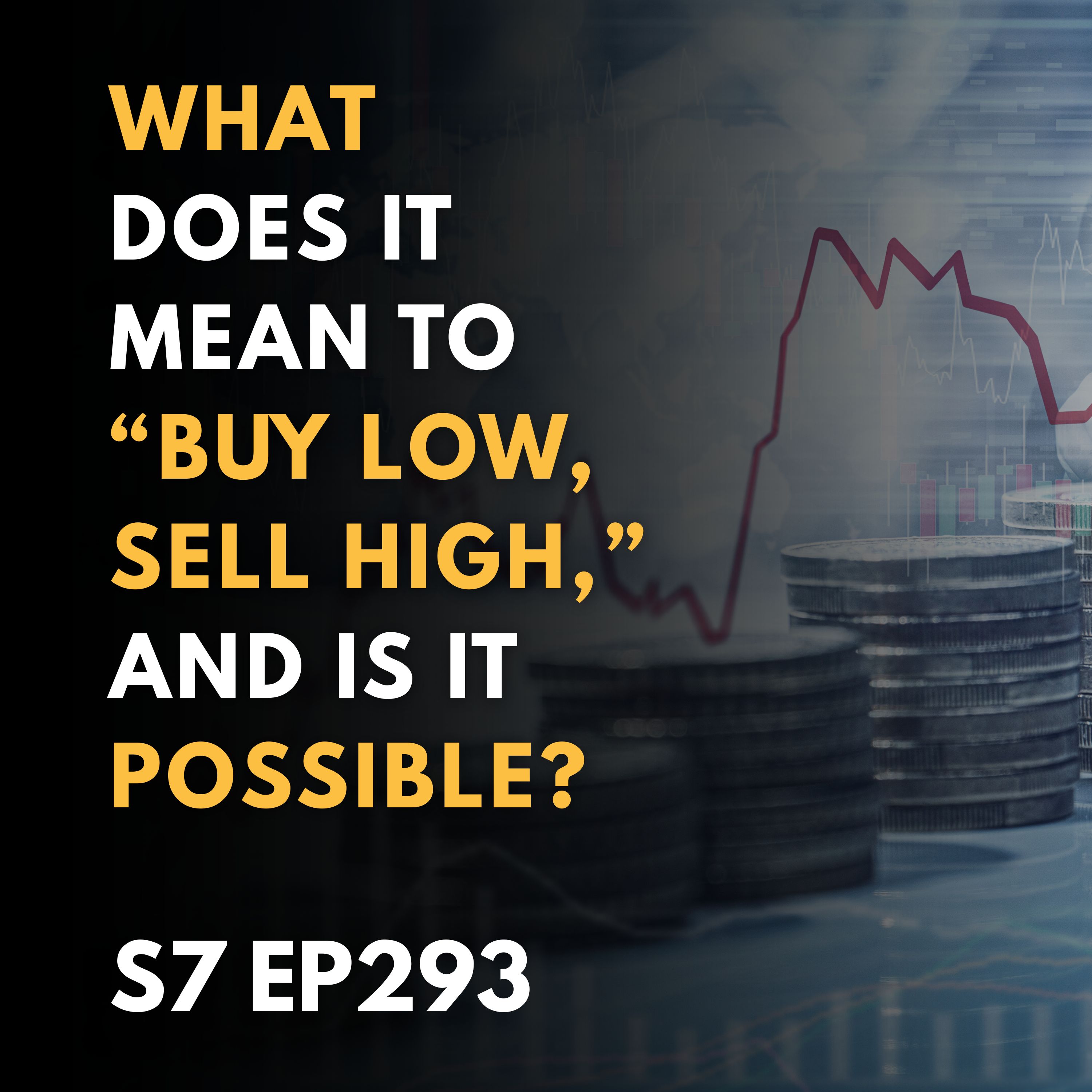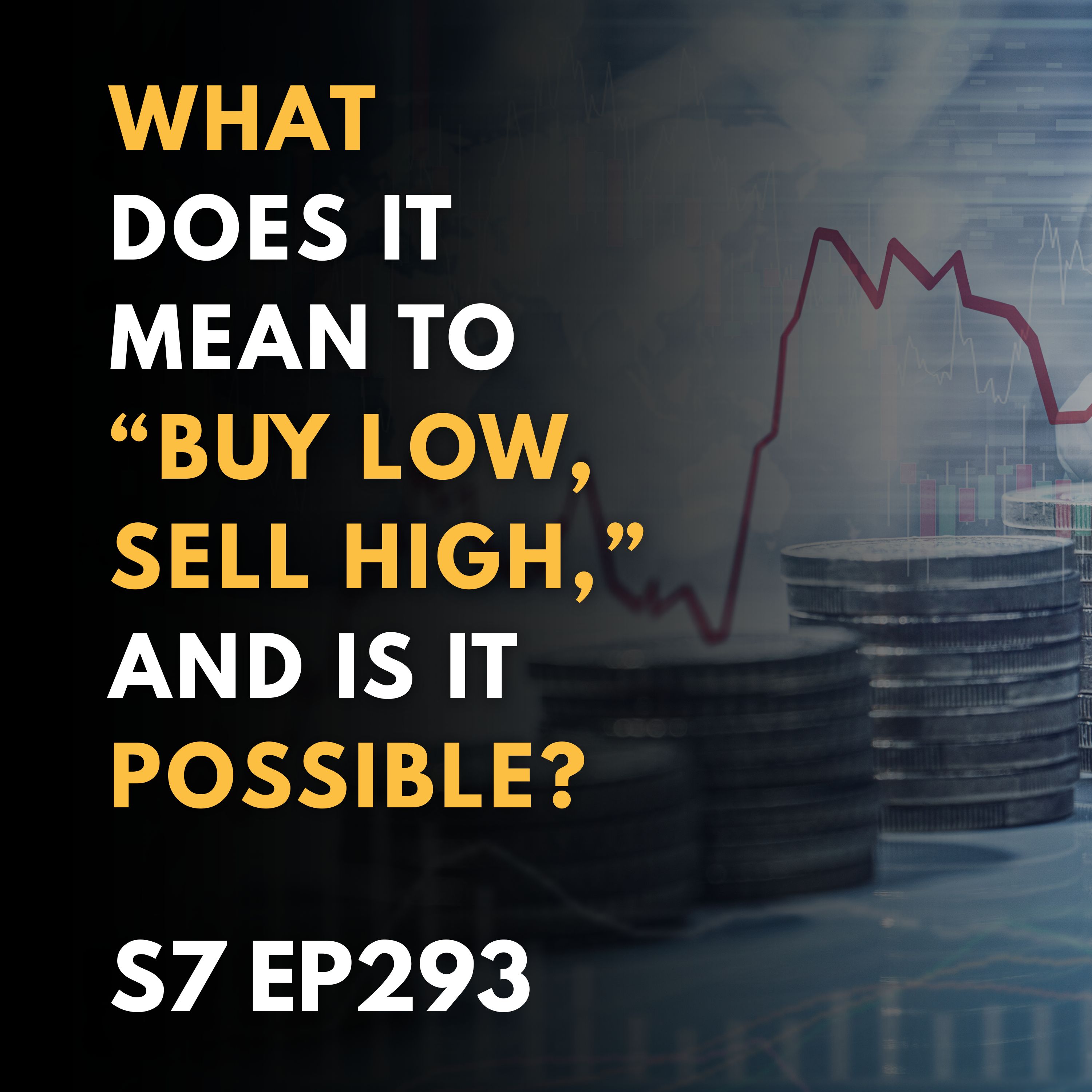Why "Buy Low, Sell High" is More Fantasy than Reality for Everyday Investors

In the world of investing, the phrase "buy low, sell high" is not just popular; it's almost treated like sacred scripture. However, for the typical investor, this idealistic approach can be as elusive as predicting the weather. Today, I’m delving into why this mantra, while alluring, often proves impractical for most of us and share a more reliable path to financial success. Why "Buy Low, Sell High" is More Fantasy than Reality for Everyday Investors
The Lure and the Myth
You've likely heard it countless times from so-called financial gurus on TV: "Buy low, sell high." It sounds so straightforward, like an effortless mantra that leads to wealth. Yet, if it were truly that simple, we'd all be billionaires by now. Despite the prevalence of this advice, very few actually follow the ideal successfully.
The Reality of Investing
The truth is that aiming to buy low and sell high can often lead to more losses than gains. Investing shouldn't be akin to gambling—it's not about chance but strategy. Instead of chasing fleeting highs and lows, steadfastness and consistency are key. Throughout my 30 years of experience, I’ve learned that consistent investing yields far more reliable outcomes than the gamble of short-term predictions.
Stories from Experience
Let me share a story of two clients. The first was a well-educated man who planned to wait for market dips to make his move. Unfortunately for him, those dips never materialized, and his money sat idly while he awaited an opportunity that never came.
Conversely, another client, who was not as well-versed in investment tactics, focused on regular, consistent investments regardless of market conditions. Over time, this consistency led her portfolio to grow beyond expectations, demonstrating the power of compounding.
Wisdom from Financial Experts
Peter Lynch, an investment legend, wisely remarked that more money has been lost by investors preparing for market corrections than during the corrections themselves. It's a common trap, waiting for perfect conditions that might never arise. The key takeaway here is simple: don’t time the market; instead, maximize your investment horizon.
Consistency: The Key to Success
Consistency is the linchpin of successful investing. Long-term strategies, fortified by diligence, patience, and a bit of faith, can outlast the failures bred by impatience and greed. As the Bible aptly illustrates in Proverbs 21:5, "The plans of the diligent lead to profit, as surely as haste leads to poverty."
Call to Action
Today, I challenge you to commit to a long-term investment strategy. Write down this mantra: "I will not chase timing. I will invest consistently." Place it somewhere visible. Remember, buying low and selling high may sell books and draw viewership, but a disciplined approach is what truly builds financial stability.
Conclusion
In conclusion, while the prospect of "buy low, sell high" is tempting, it is rarely practical. Even experts who attempt to time the market are often unsuccessful. Instead, focus on the pillars of consistency and diligence. Moving forward, make a commitment to become a wise steward of your finances. This decision is not just about accumulating wealth but about managing it with faith and persistence.
Join the Conversation
As we explore more on financial stewardship and investment strategies, I invite you to participate. Send in your questions at justaskralph.com, and let's have these insightful discussions. Together, we can all strive to be financially confident Christians, grounded in hope and wisdom for a prosperous future. God bless, and stay savvy out there!
---
With such an approach, you can look beyond the misleading allure of "buy low, sell high," adopting a method that truly works: consistent and disciplined investing.













